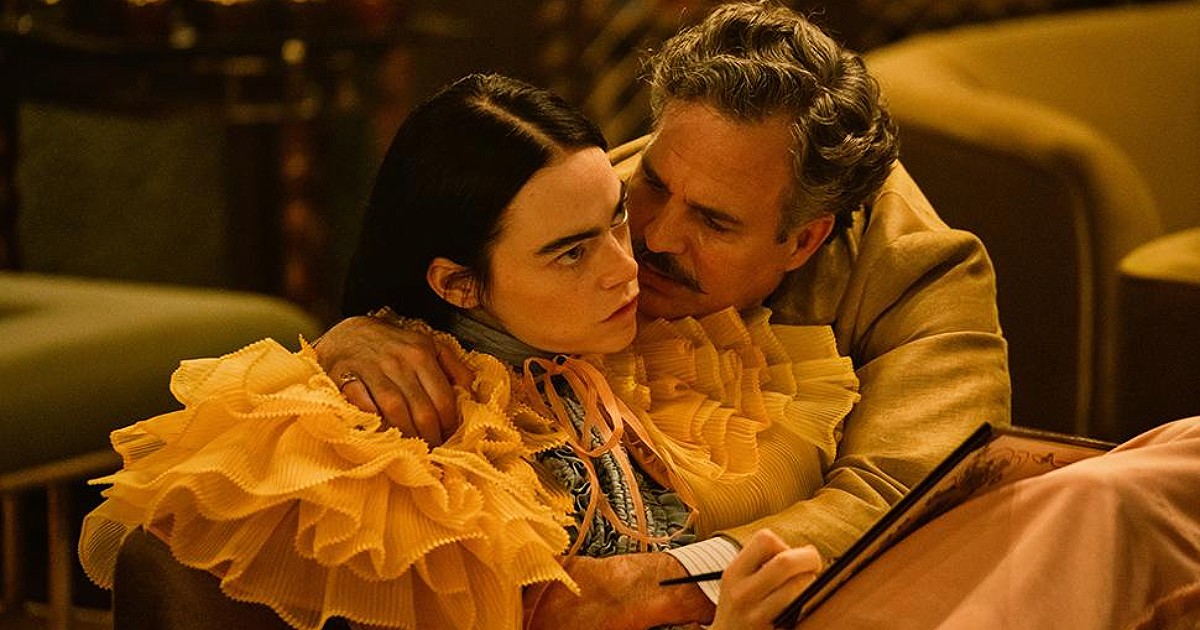
Acrobatic, funny, witty and naturally gifted with a far-sighted, extreme and bold look, which, among fans and detractors alike, never leaves indifferent. How Yorgos Lanthimos, Greek, and now British by adoption, continues to generate interest at major international festivals, notably the Venice Film Festival, whose 80th edition is entered into competition with its seventh feature. Poor things! inspired by his favorite bestseller of the same name Alasdair Gray 1992 (released a few days ago also in Italian for Safara under the name Povere Creations!). Co-producer and absolute and outstanding protagonist (Cup Volpi booked for her? Which wouldn’t be too difficult considering Chazelle is the president of the jury…) Emma Stone as the legendary Bella Baxter, a kind of Frankenstein woman created on the path to emancipation in Bildungsroman and social criticism disguised as dark fairy tale and creepy comedy with a sophisticated gothic twist, intertwined with clear allusions to horror, fantasy, family, romance and erotic movies.
All this in order to create something that we could literally define as the cinema of transplants: anatomically, artistically, metaphorically. In the end, the source material was successfully scripted Tony McNamara (which he had already offered to Lanthimos Most lovely on a golden platter, and actually won an Oscar for best screenplay) was already excellent, able to seduce readers and, therefore, also the fearless Lanthimos: “I have never read anything like this. Gray was an artist and also did some of the illustrations for his book. In fact, it was a story about the freedom of a woman in society. The way was open to tell such a story.” Poor things! therefore, it is a polyform object, as it tells of this young woman, born from the corpse of a pregnant suicide, whose deceased brain is replaced by that of her fetus by a brilliant and insane surgeon/demiurge (Willem Dafoe) – also with a wired face and body – focuses the lens on a polarized, unjust, increasingly dehumanized and god-blinded society of capitalism.
Bella is actually the freak among the freaks of Victorian London, whose society is still built on radical classism, where rich and poor could only communicate through some kind of artificial science or magic. Through the terrible union of the deceased adult body and the “unborn” infantile brain, an initially monstrous creature is born, which, growing up, will become a litmus test for highlighting all the original sins of human destiny, especially when it was decided – many centuries ago. – become degraded and ugly within the framework of social conventions. In the end, the real monsters are the so-called normalists, or rather “compatible” with the homologating society already at the time, which Alistair used as a metaphorical model to speak to the modern world. Bella Baxter’s “rebel” journey is certainly a “feminist” journey in the best sense of the word, but it’s also a journey. declaring the freedom to think, speak, act, pity, love and hate anyoneanywhere and at any time in history. And if these are the main themes of the film, then we should not forget that this is primarily a figurative substance, an artistic and representative device of truth even more than reality.
Here the Greek director transforms his “poor creatures” into very real characters and inserts them into a script of pure phantasmagoria, full of quotes but also audiovisual ideas, where the light created by the genius of Robbie Ryan mixes black and white 1930s silent cinema and unnatural color palette, because realism certainly does not belong to this film. Once again, costumes (Bella develops as she grows as a person..), make-up, the whole kind of text are combined with a “noisy” soundtrack that borders on dystonia. In short, this latest work by Yorgos Lanthimos, whose evolution is evident and allows him to forgive some of the sensational missteps of the past, is a subtle, surprising and humanistic collage dedicated to telling that wonderfully funny mystery that is human existence. We will see it in Italian cinemas from October 12th..
